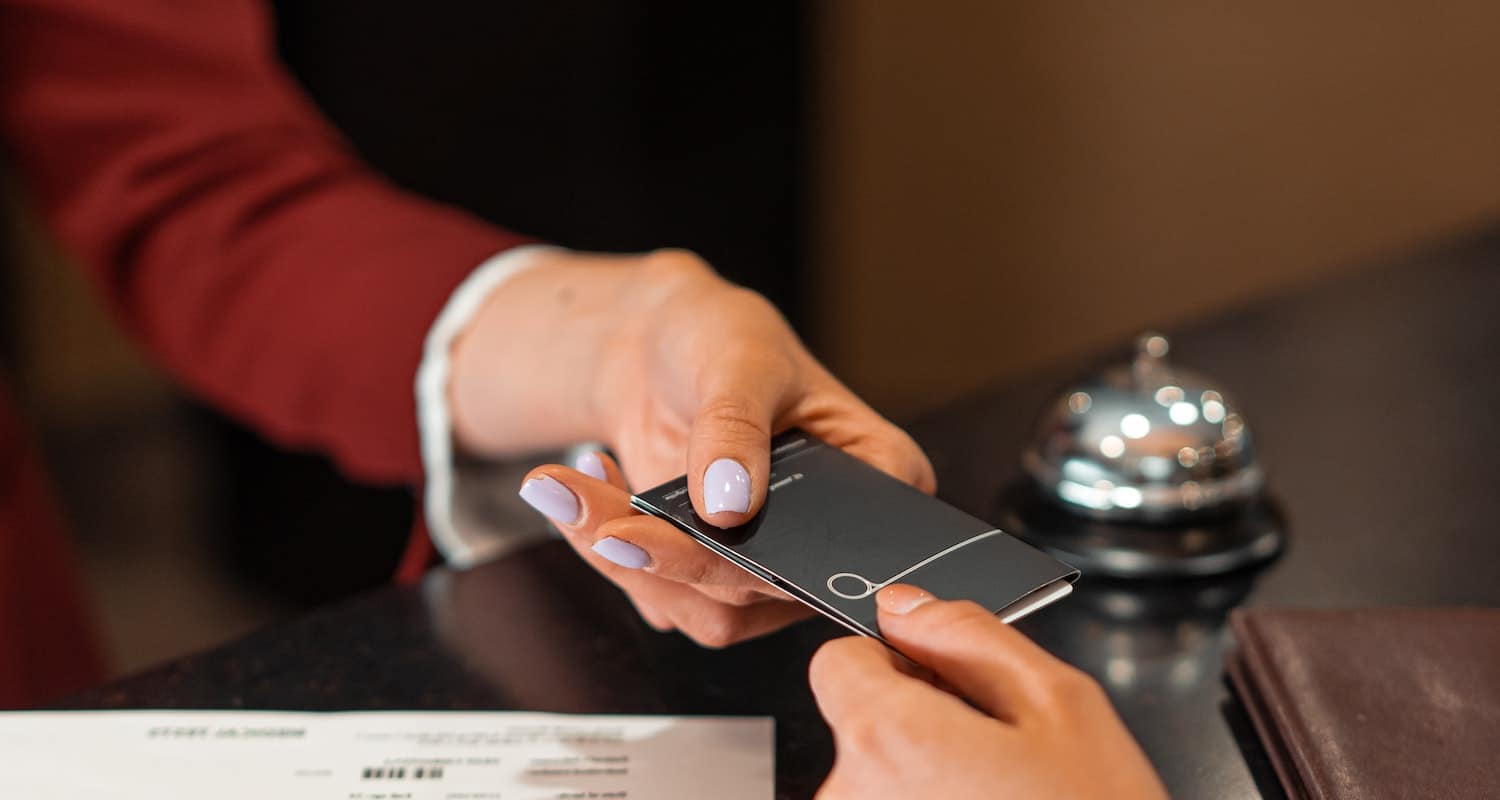Can I Pay for a Hotel Room for Someone Else Using My Credit Card?
Booking a hotel room for someone else can be a convenient solution, whether you’re planning a surprise getaway for a loved one or arranging accommodations for a business associate. However, the process can raise questions, particularly when it comes to using your credit card for the reservation.
If you’re short on time, here’s a quick answer to your question: Yes, you can typically pay for a hotel room for someone else using your credit card, but there are certain considerations and steps to follow to ensure a smooth transaction.
In this comprehensive guide, we’ll explore the ins and outs of paying for a hotel room for someone else with your credit card. We’ll cover the legalities, potential challenges, and best practices to make the process seamless and secure.
Understanding the Legalities
When it comes to paying for a hotel room for someone else using your credit card, it’s crucial to understand the various legal and policy implications involved. While the process may seem straightforward, there are several factors to consider to ensure a smooth and hassle-free transaction.
Let’s delve into the key areas that govern this practice.
Credit Card Policies
Most major credit card companies allow you to use your card to pay for goods and services on behalf of others. However, they typically have specific policies in place to prevent fraudulent activities. Some issuers may require you to provide the name of the person you’re paying for or request additional verification if the transaction seems suspicious.
It’s essential to review your credit card’s terms and conditions carefully, as they outline the permitted uses and any restrictions or limitations. Failure to comply with these policies could potentially lead to declined transactions or even account suspension. 😮

Hotel Policies
Hotels also have their own set of policies when it comes to accepting third-party payments for room reservations. Many hotels allow guests to pay for their stay using a credit card not in their name, provided the cardholder authorizes the charge.
However, some hotels may require additional documentation or verification, such as a signed authorization form or proof of relationship between the cardholder and the guest. 📝
The majority of hotels allow third-party credit card payments for room reservations, while only a few have stricter policies in place. It’s always advisable to contact the hotel directly and inquire about their specific policies to avoid any surprises or complications upon check-in.
Third-Party Booking Platforms
If you’re booking a hotel room for someone else through a third-party platform like Expedia, Booking.com, or Hotels.com, the process becomes a bit more streamlined.
These platforms typically allow you to enter the guest’s information and use your credit card for payment during the booking process. However, it’s still important to review their terms and conditions, as they may have additional requirements or restrictions.
One advantage of using third-party booking platforms is that they often provide additional layers of protection and support in case of any issues or disputes.
For example, Expedia’s website clearly outlines their policies for paying for others’ hotel stays, including the ability to request refunds or make changes to the reservation if needed.
Regardless of the method you choose, it’s always a good idea to communicate openly with the hotel or booking platform about your intentions to pay for someone else’s stay. This transparency can help avoid misunderstandings and ensure a smooth and enjoyable experience for all parties involved. 😊
Potential Challenges and Solutions
Verifying Identity
One of the primary concerns when paying for a hotel room for someone else is verifying the identity of the guest. Hotels typically require the guest to present a valid ID and the credit card used for payment upon check-in.
If you’re booking the room for someone else, the hotel may request additional documentation to confirm the reservation details and the guest’s identity. This measure is in place to prevent fraud and ensure the safety of all guests.
To address this challenge, you can provide the hotel with a copy of the guest’s ID and a signed authorization letter stating that you’re paying for their stay. Some hotels may also accept a credit card authorization form, which allows the hotel to charge your card for the guest’s stay.
Incidental Charges
Incidental charges, such as room service, minibar purchases, or parking fees, can add up quickly during a hotel stay. When you’re paying for someone else’s room, you may be responsible for covering these additional expenses.
Hotels typically place a hold on the guest’s credit card or request a security deposit to cover potential incidental charges. However, if the guest doesn’t have a credit card or doesn’t want to provide one, the hotel may require you to authorize the charges to your card.
To avoid unexpected charges, it’s essential to communicate clearly with the hotel and the guest about who will be responsible for incidental expenses. You can set a limit on the amount you’re willing to cover or request that the guest pay for any additional charges separately.
Some hotels offer the option to pre-authorize a specific amount for incidentals, which can provide peace of mind for both parties.

Communication with the Hotel
Clear and open communication with the hotel is crucial when paying for someone else’s room. Hotels have different policies and procedures regarding third-party payments, so it’s essential to understand their requirements upfront. Don’t be afraid to ask questions and clarify any concerns you may have.
When making the reservation, inform the hotel that you’ll be paying for someone else’s stay and provide the necessary details, such as the guest’s name, arrival and departure dates, and any special requests.
Additionally, you may need to provide your credit card information over the phone or through a secure online portal.
Maintaining open communication throughout the guest’s stay can also help address any issues or concerns that may arise. For example, if the guest needs to extend their stay or if there are any unexpected charges, the hotel can contact you directly to resolve the matter.
Step-by-Step Guide
Gathering Necessary Information
Before you can book a hotel room for someone else, it’s crucial to gather all the necessary information.
First and foremost, you’ll need to have the recipient’s full name, contact details (phone number and email address), and any specific preferences or requirements they may have, such as room type, bed configuration, or accessibility needs.
It’s also a good idea to confirm the dates of their stay and any additional services they might require, like airport transfers or breakfast inclusions.
Next, you’ll want to research the hotel options in the area where the recipient will be staying. Websites like TripAdvisor, Hotels.com, and Booking.com can provide valuable insights into hotel ratings, amenities, and pricing. The majority of travelers consider online reviews when choosing a hotel, so be sure to read through the comments from previous guests.
Making the Reservation
Once you’ve gathered all the necessary information and narrowed down your hotel options, it’s time to make the reservation. Most hotels will allow you to book a room using a credit card in someone else’s name, but you’ll need to provide the recipient’s name and contact details during the booking process.
Some hotels may require additional authorization or verification steps, so be prepared to provide documentation or answer security questions.
When making the reservation, be sure to clearly communicate that the room is being booked for someone else and provide their name and contact information. This will ensure that the hotel staff is aware of the situation and can properly coordinate check-in and any other necessary arrangements. It’s also a good idea to request a confirmation email or reservation number for your records.
Providing Authorization
In some cases, the hotel may require additional authorization or verification before allowing you to pay for someone else’s room with your credit card. This is a common security measure to prevent fraud and ensure that the reservation is legitimate. 🎉
One common method of authorization is to have the recipient provide a signed letter or email giving you permission to book and pay for their hotel room. The letter should include their full name, the dates of their stay, and a statement explicitly authorizing you to use your credit card for the reservation.
Alternatively, the hotel may ask you to provide a copy of the recipient’s government-issued ID or have them call the hotel directly to confirm the reservation.
If you encounter any issues or have questions during the process, don’t hesitate to contact the hotel’s customer service or reservations department. They’ll be able to guide you through any specific policies or procedures related to booking a room for someone else.
With a little preparation and clear communication, you can easily arrange accommodations for your loved ones or colleagues using your credit card. 😍

Best Practices and Tips
Communicating with the Guest
When paying for someone else’s hotel room, clear communication is key 🔑. Before making the reservation, discuss their preferences, such as room type, amenities, and any special requests. This ensures their stay is comfortable and tailored to their needs.
You can also share important details like the hotel’s name, address, and confirmation number, so they have all the necessary information.
It’s a thoughtful gesture to check in with the guest during their stay. A quick text or call can go a long way in making them feel valued and ensuring their experience is going smoothly. If any issues arise, you can promptly address them with the hotel on their behalf.
Monitoring Charges
When using your credit card to cover someone else’s hotel charges, it’s crucial to monitor the charges carefully. Many hotels place a hold on the card for incidentals like room service, minibar purchases, or spa treatments.
The average hold amount is around $50 to $200, but it can be higher at luxury hotels. To avoid unexpected charges, communicate clearly with the guest about what expenses are covered and set boundaries if needed.
You can also request regular updates from the hotel on the charges incurred during the stay. This transparency ensures there are no surprises when the final bill arrives.
Cancellation and Refund Policies
Before booking a hotel room for someone else, it’s essential to understand the cancellation and refund policies. These policies can vary widely among hotels and can impact your ability to get a refund if plans change unexpectedly. 😔
Many hotels have strict cancellation policies, requiring guests to cancel at least 24-48 hours before their stay to avoid penalties. Some hotels may even charge the full amount for last-minute cancellations or no-shows.
To protect yourself, carefully review the cancellation and refund policies before booking. Consider purchasing travel insurance or selecting a flexible rate that allows for cancellations or changes without penalties. This can provide peace of mind and prevent any unpleasant surprises down the line. 👍
Alternative Payment Methods
While paying for a hotel room using your own credit card is a common practice, there are alternative payment methods that can come in handy when you need to book accommodations for someone else.
Here are some popular options to consider:
Gift Cards
Gift cards have become a convenient way to cover the cost of a hotel stay for someone else. Many major hotel chains offer branded gift cards that can be purchased online or at physical locations.
According to Statista, in 2023, around 50% of Americans purchased gift cards as presents. Gift cards are a great option if you want to give someone the flexibility to choose their preferred hotel and dates.
Third-Party Booking Sites
Online travel agencies (OTAs) like Expedia, Booking.com, and Hotels.com provide a platform where you can book a hotel room for someone else using your credit card.
These sites often offer discounted rates and bundle deals, making them a cost-effective option. Plus, you can easily share the booking details with the recipient via email or a shareable link.
Direct Billing
If you’re booking a hotel room for a business associate or employee, many hotels offer direct billing options. This method allows you to provide the hotel with your company’s billing information, and the charges are directly billed to your organization.
Direct billing can be convenient for corporate travel and eliminates the need for employees to use their personal credit cards.
Whichever alternative payment method you choose, it’s essential to verify the hotel’s policies and ensure that the recipient’s information is accurate. Some hotels may require additional documentation or have specific procedures for third-party bookings.
By exploring these options, you can make the process of paying for someone else’s hotel room smoother and more convenient for everyone involved. 👍
- Gift cards offer flexibility and can be purchased online or in-store.
- Third-party booking sites like Expedia and Booking.com allow you to book a room for someone else using your credit card, often with discounted rates.
- Direct billing is a popular choice for business travelers, where the company is billed directly for the hotel stay.
So, the next time you need to book a hotel room for a friend, family member, or colleague, don’t hesitate to explore these alternative payment methods. They can save you time, money, and provide a hassle-free experience for everyone involved. 🎉
Conclusion
Paying for a hotel room for someone else using your credit card can be a convenient and thoughtful gesture, but it’s essential to understand the legalities, potential challenges, and best practices involved.
By following the steps outlined in this guide, you can navigate the process smoothly and ensure a hassle-free experience for both you and the guest.
Remember to communicate openly with the hotel, gather all necessary information, and familiarize yourself with cancellation and refund policies. Additionally, consider alternative payment methods if they better suit your needs or preferences.
With the right approach and precautions, you can confidently book accommodations for others, whether it’s for a special occasion, business trip, or any other reason. Happy travels!






